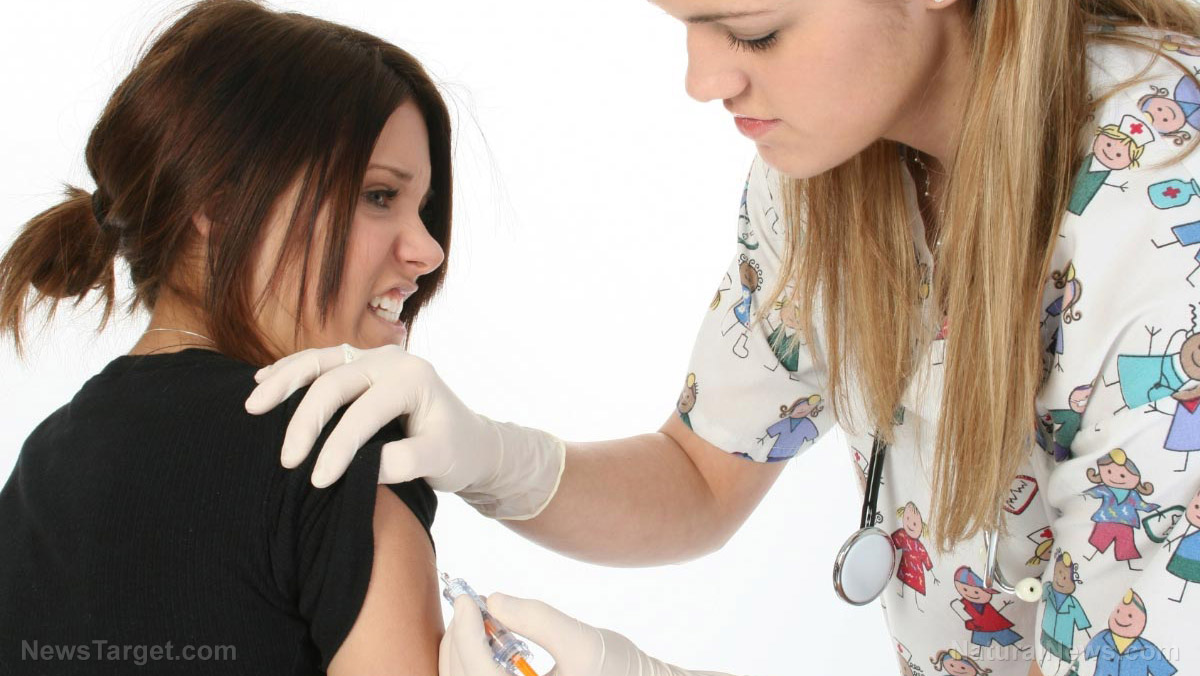
- 31.12.2020
- 0.0 Reitingas
- 492 Peržiūros
- Aptarti
(Paranormal) A large percentage of the population, including medical professionals, still have doubts over the Wuhan coronavirus vaccine. The hesitation stems from safety and efficacy concerns regarding vaccine candidates currently available. This has prompted agencies such as the World Health Organization (WHO) to step up their campaigns to lessen people’s doubts regarding the COVID-19 jab.
(Article by Ramon Tomey republished from NaturalNews.com)
Three pharmaceutical firms are expected to roll out their Wuhan coronavirus vaccine candidates by January 2021. Both the Pfizer and Moderna jabs recorded efficacy rates higher than 90 percent, while AstraZeneca’s vaccine had a 70 percent efficacy rate. However, despite the high efficacy rates – a large number of people are having second thoughts regarding the coronavirus vaccine. A number of surveys reflect this hesitation.
Researchers from the Jonathan and Karin Fielding School of Public Health at the University of California Los Angeles asked more than 1,000 healthcare workers in metropolitan Los Angeles in a survey done from September to October. They found that 66.5 percent of respondents “intend to delay vaccination” for COVID-19, preferring to review available safety data first before doing so. Many of the health care workers cited “concerns about expedited development” as a primary reason for delaying their immunization.
Another survey by the National Association for the Advancement of Colored People (NAACP) found that minorities expressed significant concerns about the Wuhan coronavirus vaccine. The survey branded as “one of the largest and most rigorous conducted on this topic to date” found that only 14 percent of Black respondents trust that a vaccine will be safe, while only 34 percent of Hispanic respondents believed in the safety of a Wuhan coronavirus jab.
The safety concerns surrounding coronavirus vaccines come amid reports of adverse reactions linked to Pfizer’s vaccine candidate. The drugmaker’s BNT162b2 jab developed alongside German partner BioNTech received approval from both U.S. and U.K. regulators. However, two British health workers experienced “anaphylactoid reactions” after being vaccinated with the Pfizer candidate. Four volunteers in Pfizer’s U.S. trials developed facial paralysis after getting the shot, but eventually recovered.
Health officials are aiming to reduce vaccine hesitancy using multi-faceted communication campaigns
Given Americans’ second thoughts about vaccination, health officials plan to use a variety of campaigns to ‘educate’ the public regarding vaccine safety.
WHO Technical Advisory Group on Behavioral Insights Chairman Cass Sunstein wrote in a September Bloomberg op-ed that confidence in vaccines “can be the toughest nut to crack.” Sunstein suggested enlisting the help of “high-profile people who are respected and admired by those who lack confidence in vaccines” such as trusted politicians, athletes or actors. He explains that these personalities, which people generally think as “‘one of us’ rather than ‘one of them,’ might explicitly endorse vaccination and report that they themselves have gotten the vaccine.”
For this purpose, WHO tapped the services of public relations firm Hill + Knowlton to identify micro-influencers, macro-influencers and “hidden heroes” on social media – covertly promoting the organization as an authority on COVID-19 to ensure compliance with its advice and guidance.
Vaccine awareness campaigns will also be customized to fit certain target demographics such as African Americans. The NAACP survey also noted that aside from the 14 percent of Black respondents believing a COVID-19 vaccine is safe, only 18 percent of African American respondents believe a coronavirus jab is effective.
The Guide to COVID-19 Vaccine Communications developed by the University of Florida and the United Nations suggested reaching out to barbershops and hair salons in predominantly African American neighborhoods in order to roll out information regarding vaccines. It quoted Cornell University Department of Communication assistant professor Neil Lewis Jr.: “For Black Americans, … barbershops turn out to be a really good place to get health information. [Having] doctors train the barbers to talk about it turns out to be quite effective.”
Visit MedicalTyranny.com to find out how health authorities will try to convince the public to take the Wuhan coronavirus vaccine.
Sources include:
Covid19VaccinesCommunicationPrinciples.org
Pasaulio naujienas kitaip... skaitykite Paranormal Telegram, FB ir X(twitter) kanale...kadangi jau perskaitėte šį straipsnį iki pabaigos, prašome Jus prisidėti prie šio darbo. Skaitykite „Paranormal.lt“ ir toliau, skirdami kad ir nedidelę paramos sumą. Paremti galite Paypal arba SMS. Kaip tai padaryti? Iš anksto dėkojame už paramą! Nepamirškite pasidalinti patikusiais tekstais su savo draugais ir pažįstamais.
Turite savo nuomone, tapk autoriumi, prisijunk ir rašykite bloge. Dalinkitės receptais, sveikatos patarimais, nutikimais, susidūrėte su nekasdieniškais reiškiniais. Galite išversti iš užsienio kalbos, talpinkite su nuoroda. Laukiame Jūsų straipsnių, naujienų, apžvalgų ar istorijų!
Susijusios naujienos
Būkite pirmi, kurie pasidalins savo nuomonėmis su kitais.
Skaityti daugiau
Skaityti daugiau
Skaityti daugiau
Skaityti daugiau
Skaityti daugiau

